100 Thanksgivings ago
If the Agenda were around in 1924 … $3 million was a lot back then … And the news was far more racist.
Despite the best efforts of the Arizona Republican’s editorial board, George W.P. Hunt eked out another term in the November election, winning his fifth term and guaranteeing him a decade in office.1
That’s the November 1924 election, of course.
We love combing the archives of old newspapers, and there’s no better time to do that than Thanksgiving — the thickest newspaper of the year.
So for our pre-Thanksgiving edition, we’re looking back on the fallout of the 1924 gubernatorial election, imagining what the Agenda would have looked like if we were publishing waaaaay back in the day.
Voters back then were abuzz with news about the Colorado River Compact, which lawmakers will have to renegotiate next year.
They were also looking at a proposal to legalize gambling on horse races with pari-mutuel machines,2 and whether the state Legislature should ratify a constitutional amendment banning child labor.
Should we take bets on how lawmakers would vote on those issues today?
The Republican (now known as the Republic) never missed a chance to drag Hunt through the mud. The paper gleefully pointed to Hunt’s correspondence with an executive at the Stetson Power Company, which had big interests in the Colorado River. The company bought tons of “place claims” at potential dam sites along the river, the Republican pointed out.
They also accused Hunt of allowing an “orgy of gambling” at the state fair, while hiding behind the excuse that the courts hadn’t yet decided on the state’s anti-gambling laws.
The Republican loved Hunt’s Republican opponent, Dwight B. Heard, who wanted to run the government like a business, including putting the highway system under the business administration.
That support should come as no surprise. Heard owned the Republican.
But the paper’s backing wasn’t enough to put Heard over the top, even if there was some election-night worrying from the Hunt camp.
When the state’s roughly 76,000 ballots were counted, Hunt had won by roughly 1,000 votes.
Just like today, the Colorado River loomed large over state politics.
Hunt wanted individual states to get a specific share of water, rather than divvy up the water between the Upper and Lower Basins.
Like earlier this year when Arizonans were aghast at how much rainwater California allowed to flow into the ocean during a long-running drought, Hunt was suspicious of how much water California would need.
“Until Arizona’s rights are fully secured to such water and power as are rightfully hers for future development, we pledge the Democratic members of the legislature to oppose the Colorado river compact,” Democratic leaders wrote in their party platform.3
In the end, Arizona was the last of the seven states to ratify the compact, two decades later.
And while Hunt won Arizona, the Democrats weren’t so lucky on the national stage.
Their candidate for president, John W. Davis, challenged President Calvin Coolidge, but Davis didn’t even come close.
Big money rolls in: The final pre-election campaign finance reports are in for the Democratic and Republican national committees, the Arizona Daily Star reported. Republicans outpaced their rivals with $3.3 million, compared to $618,000 raised by the Democrats.
No stone left unturned: The get-out-the-vote campaign in Casa Grande led to a 98% turnout rate, with 510 of the town’s 520 registered voters casting their ballots, the Republican reported. The Phoenix Junior Chamber of Commerce kept a list of registered voters and ticked voters’ names off the list as they cast their ballots. Around 2 p.m. on Election Day they sent cars after the stragglers.
Not so fast: Charles Ponzi, the promoter of the get-rich-quick scheme from a few years ago, was arrested in Boston on immigration charges, the Associated Press reported. He will face deportation proceedings immediately.
If we had invented the Ponzi Scheme, we wouldn’t have to ask you to upgrade to a paid subscription.
High marks: The University of Arizona was recognized by the Association of American Universities, putting it on the same level as some of the most-respected universities in the country, the Star reported. The announcement led to a sudden outbreak of riotousness at the UA campus, which the Star’s editorial board said was “well earned” and students had “every excuse in the world” to send “dignity to the four winds.”
Trouble brewing: The Coconino County attorney and sheriff are cracking down on a wave of hunters using federal licenses to slaughter deer in the Kaibab game reserve, the Coconino Sun reported. State officials were waiting on the edge of the reserve to arrest the hunters, regardless of whether the U.S. Department of Agriculture issued them a license.
About time: To ward off the spread of typhoid fever that was burning through the city, the Globe City Council decided to require residents to connect to the sewer system, the Republican reported.
Idiocy is timeless.
But the amount of racist and sexist junk in the newspapers in 1924 is still pretty shocking!
Arizona’s governors were elected to two-year terms back then. And Thomas Campbell had a term in there.
That type of gambling, which uses equipment that resembles slot machines, wouldn’t be legalized until 1949.
The Democratic Party published its platform with a full-page explanation in the Border Vidette.


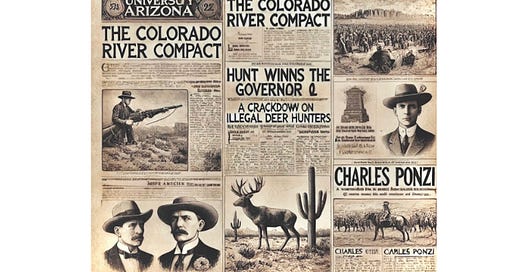

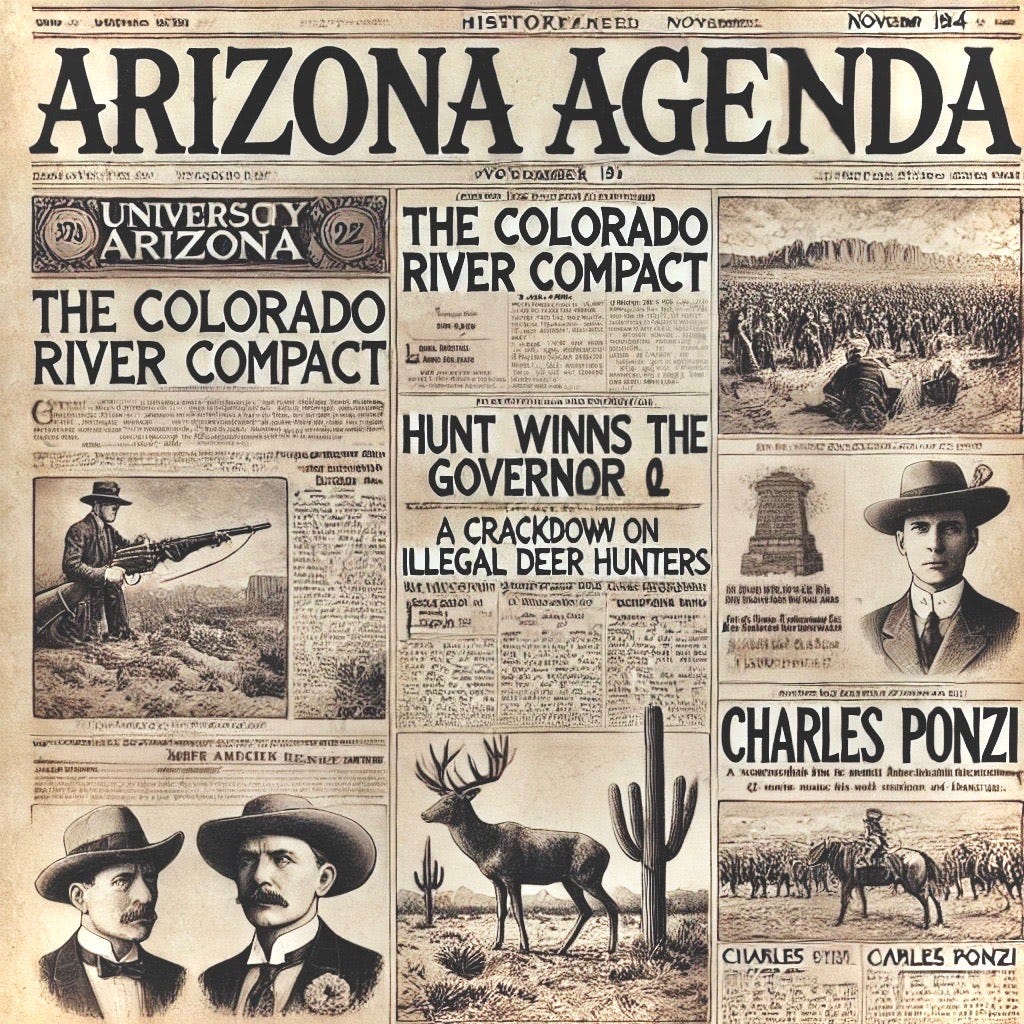
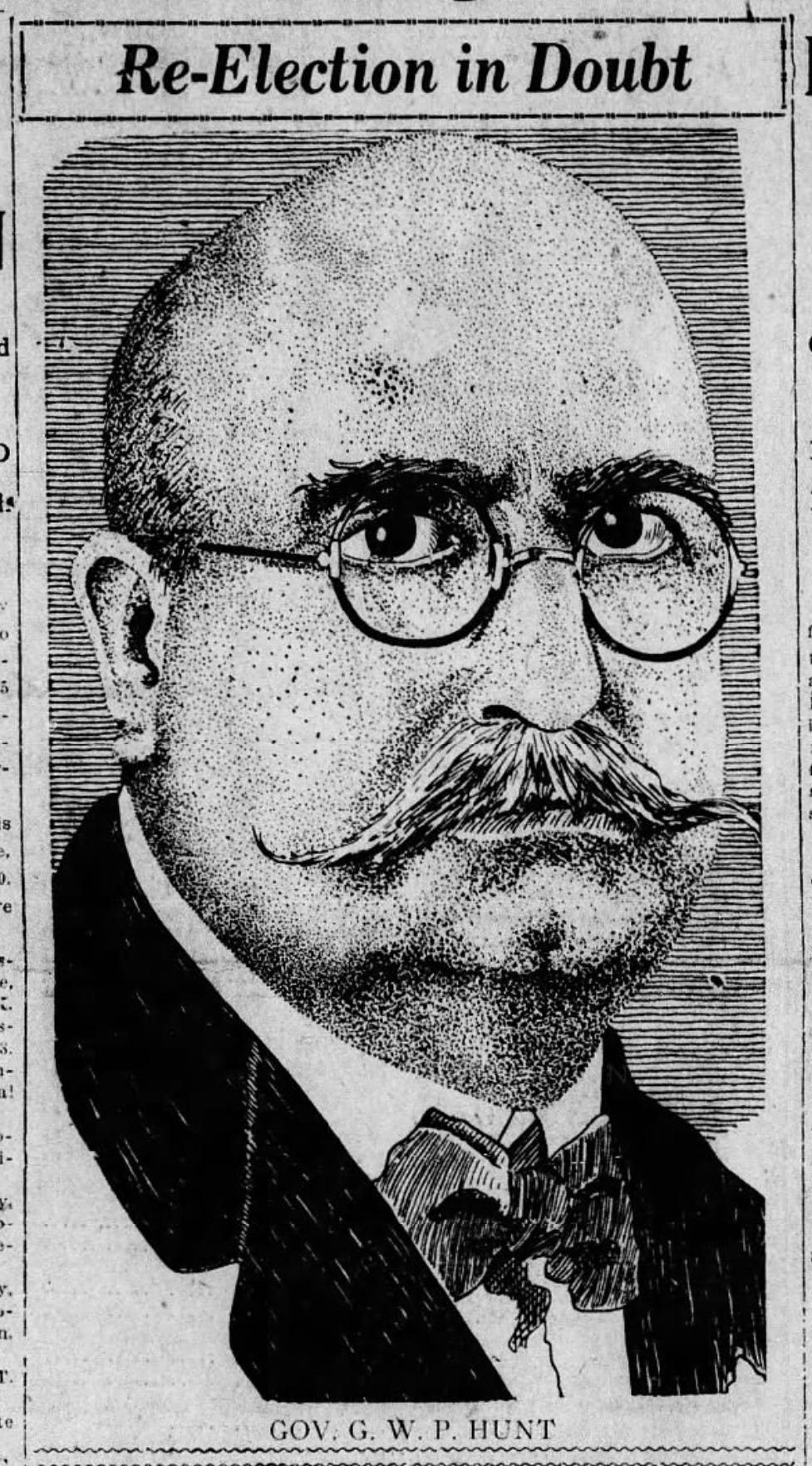
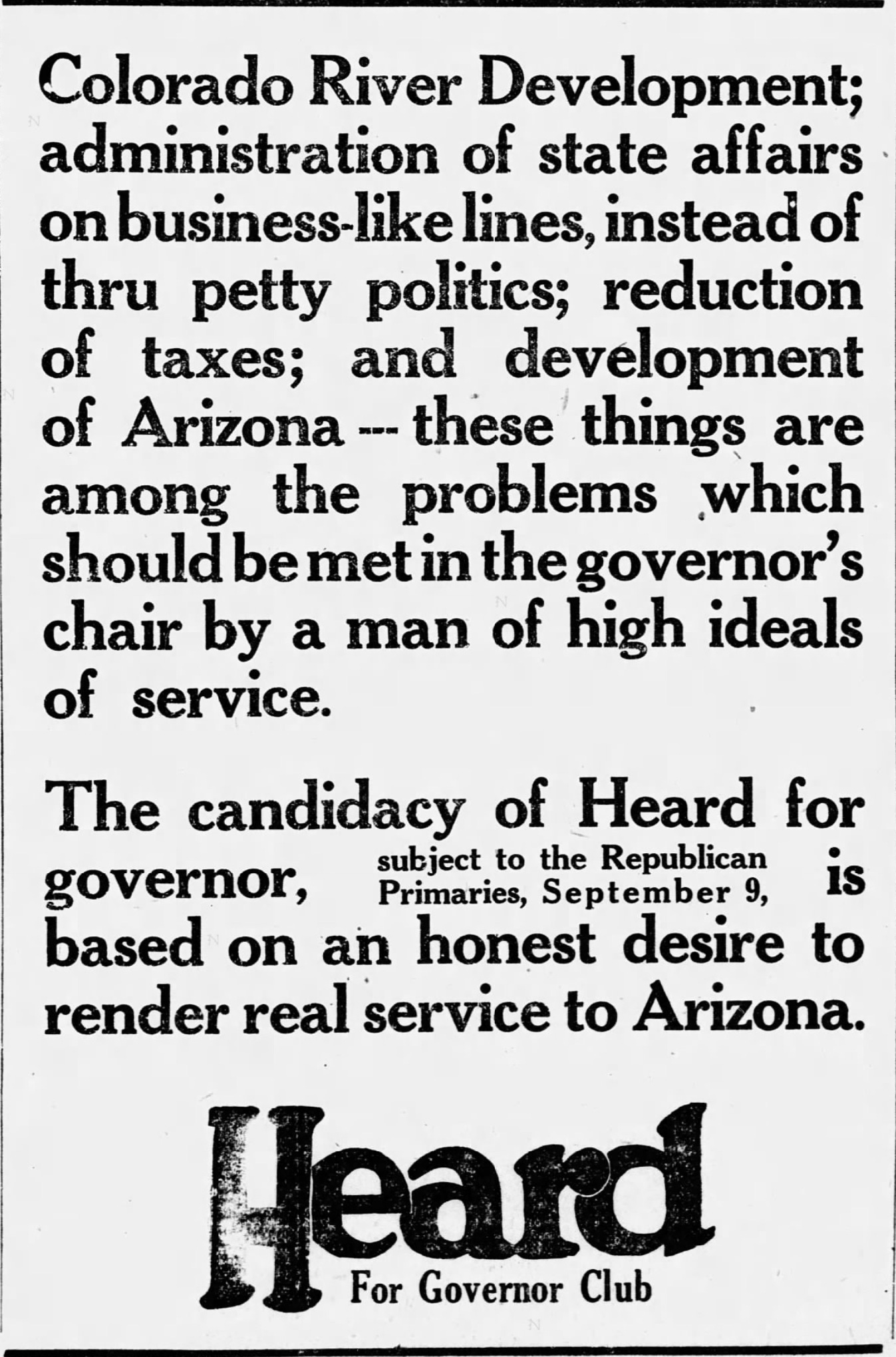

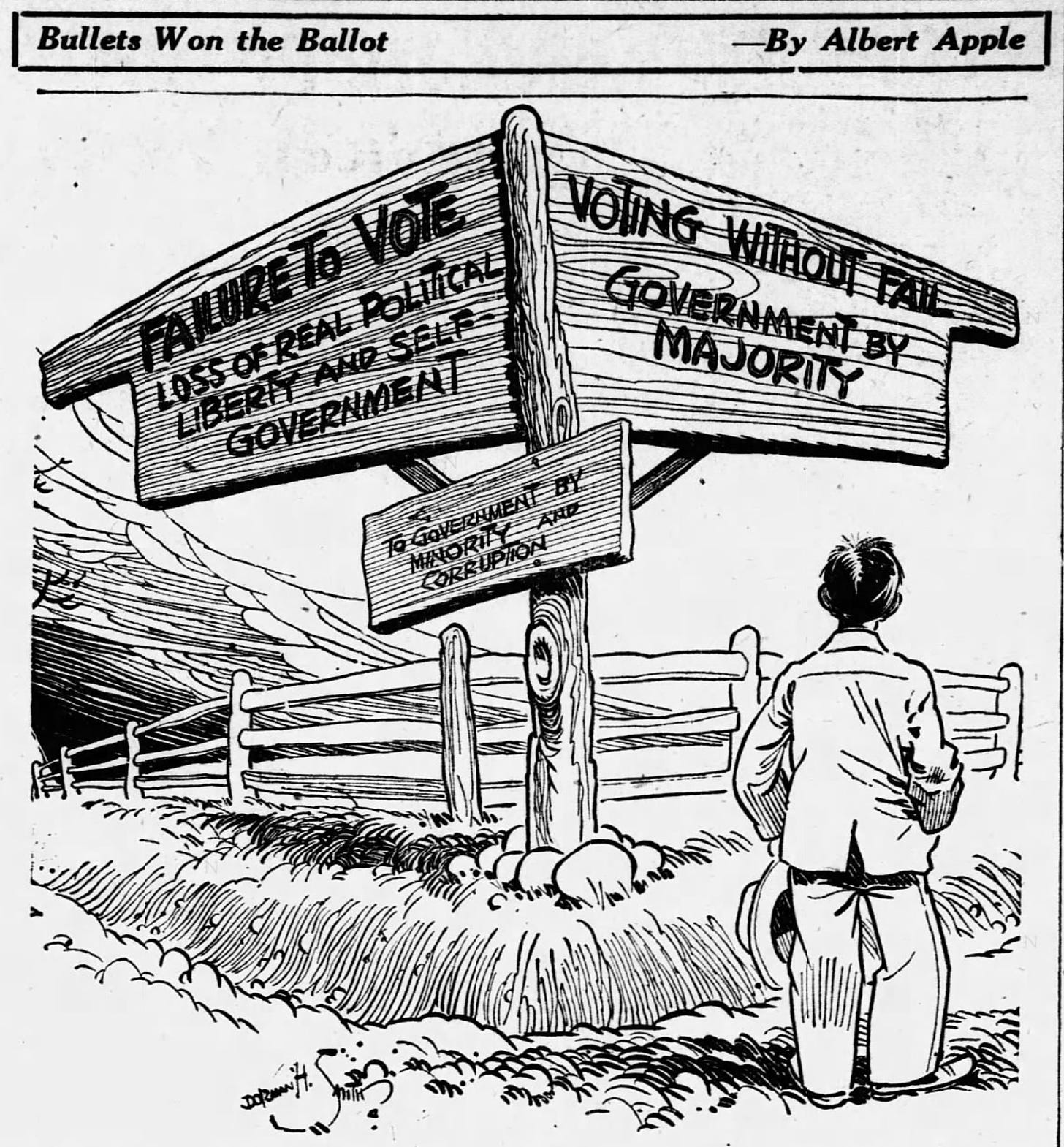
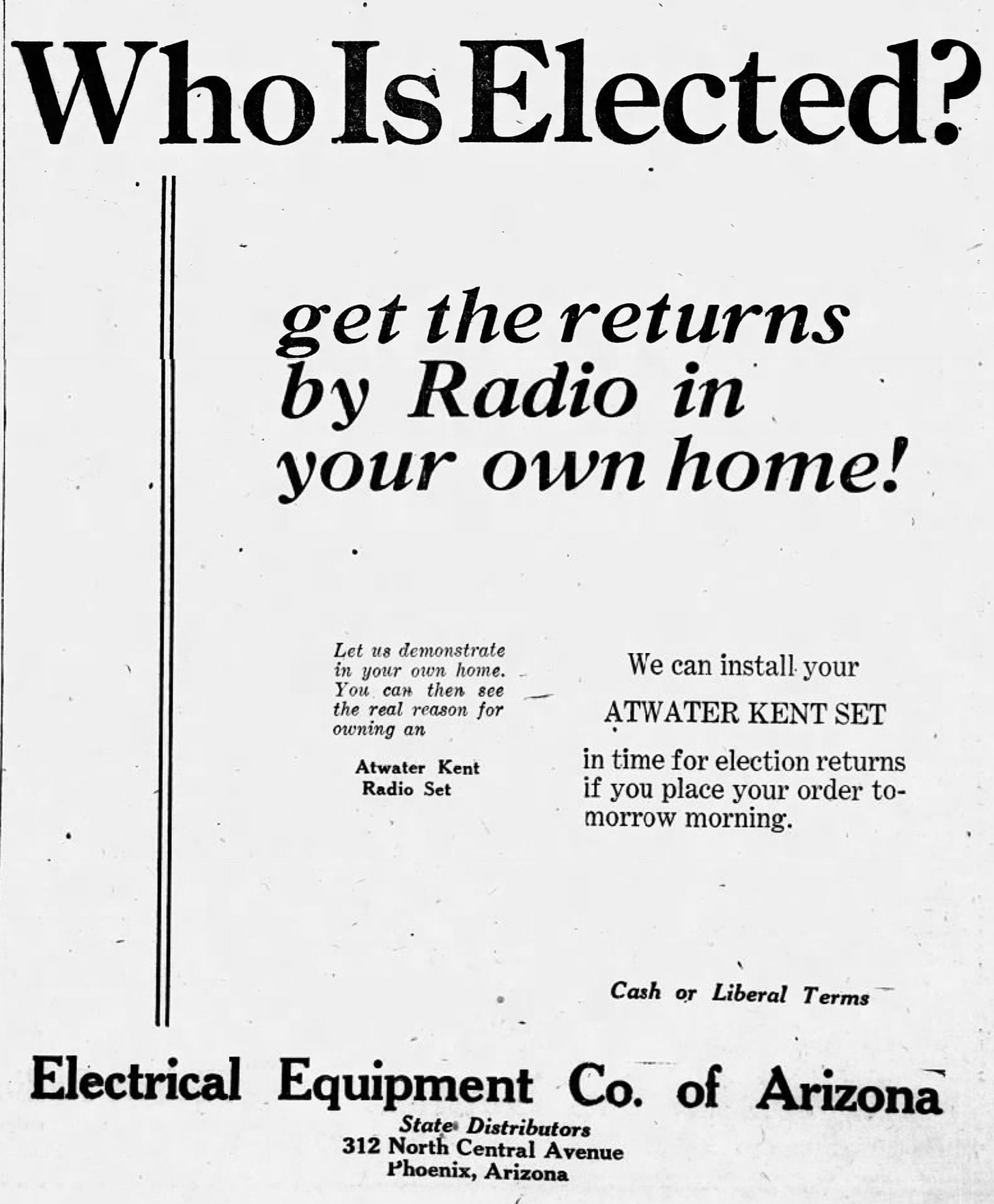

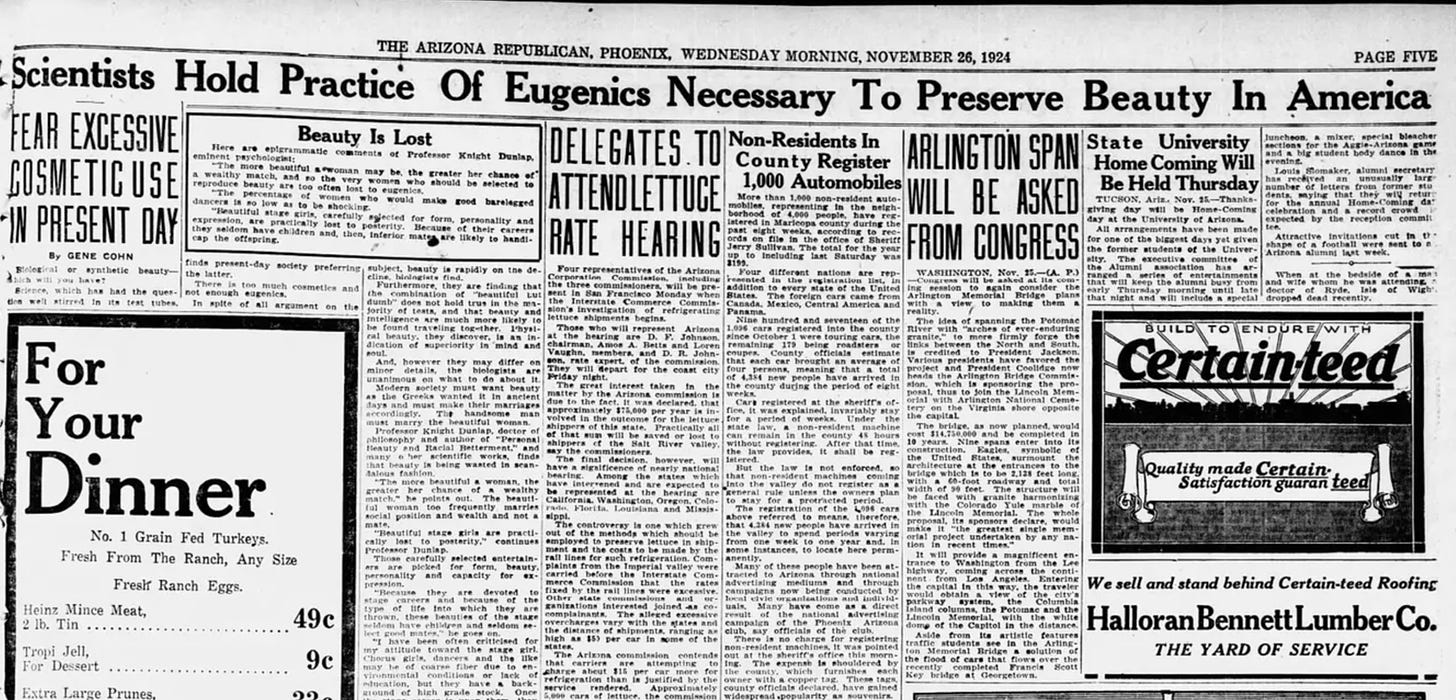
I think readers should start with "In Other News" without reading anything before it. That way they would learn that the election only cost a few million, and Casa Grande only has 520 voters (510 of which voted). That could give you a nice start to your morning.
The awesome David Rookhuyzen has a great podcast on AZ– highly recommended.
This one starts a three episode series on the journalists/newspapermen back in territorial days through statehood.
https://www.azhistorypodcast.com/episodes/episode-150-arizonas-fourth-estate